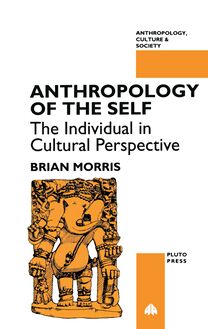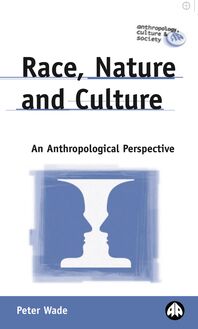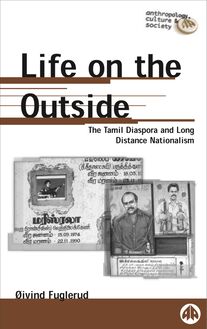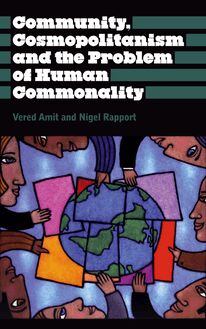-
 Univers
Univers
-
 Ebooks
Ebooks
-
 Livres audio
Livres audio
-
 Presse
Presse
-
 Podcasts
Podcasts
-
 BD
BD
-
 Documents
Documents
-
- Cours
- Révisions
- Ressources pédagogiques
- Sciences de l’éducation
- Manuels scolaires
- Langues
- Travaux de classe
- Annales de BEP
- Etudes supérieures
- Maternelle et primaire
- Fiches de lecture
- Orientation scolaire
- Méthodologie
- Corrigés de devoir
- Annales d’examens et concours
- Annales du bac
- Annales du brevet
- Rapports de stage
La lecture à portée de main
Vous pourrez modifier la taille du texte de cet ouvrage
Découvre YouScribe en t'inscrivant gratuitement
Je m'inscrisDécouvre YouScribe en t'inscrivant gratuitement
Je m'inscrisEn savoir plus
Vous pourrez modifier la taille du texte de cet ouvrage
En savoir plus

Description
Concern about our food system is growing, from the costs of industrial farming to the dominant role of supermarkets and recurring scandals about the origins and content of what we eat.
Food for Change documents the way alternative food movements respond to these concerns by trying to create more closed economic circuits within which people know where, how, and by whom their food is produced.
Jeff Pratt, Peter Luetchford and other contributors explore the key political and economic questions of food through the everyday experience and vivid insights of farmers and consumers, using fieldwork from case studies in four European countries: France, Spain, Italy and England. Food for Change is an insightful consideration of connections between food and wider economic relations and draws on a rich vein of anthropological writing on the topic.
Preface
1. Introduction
2. Farming And Its Value by Jeff Pratt
3. Food And Consumption by Peter Luetchford
4. Tuscany, Italy by Jeff Pratt
5. The Tarn, France by Myriem Naji
6. Andalusia, Spain by Peter Luetchford
7. Sussex, England by Sara Avanzino
8. Food Activism
9. Economics And Morality
Afterword
Bibliography
Index
Sujets
Informations
| Publié par | Pluto Press |
| Date de parution | 06 décembre 2013 |
| Nombre de lectures | 1 |
| EAN13 | 9781783710041 |
| Langue | English |
| Poids de l'ouvrage | 2 Mo |
Informations légales : prix de location à la page 0,1850€. Cette information est donnée uniquement à titre indicatif conformément à la législation en vigueur.
Extrait
Food For Change
Anthropology, Culture and Society
Series Editors:
Professor Vered Amit, Concordia University
and
Professor Christina Garsten, Stockholm University
Recent titles:
Claiming Individuality: The Cultural Politics of Distinction
E DITED BY V ERED A MIT AND N OEL D YCK
Community, Cosmopolitanism and the Problem of Human Commonality
V ERED A MIT AND N IGEL R APPORT
Home Spaces, Street Styles: Contesting Power and Identity in a South African City
L ESLIE J. B ANK
In Foreign Fields: The Politics and Experiences of Transnational Sport Migration
T HOMAS F. C ARTER
On the Game: Women and Sex Work
S OPHIE D AY
Slave of Allah: Zacarias Moussaoui vs the USA
K ATHERINE C. D ONAHUE
A World of Insecurity: Anthropological Perspectives on Human Security
E DITED BY T HOMAS E RIKSEN , E LLEN B AL AND O SCAR S ALEMINK
A History of Anthropology Second Edition
T HOMAS H YLLAND E RIKSEN AND F INN S IVERT N IELSEN
Ethnicity and Nationalism: Anthropological Perspectives Third Edition
T HOMAS H YLLAND E RIKSEN
Small Places, Large Issues: An Introduction to Social and Cultural Anthropology Third Edition
T HOMAS H YLLAND E RIKSEN
What Is Anthropology?
T HOMAS H YLLAND E RIKSEN
Discordant Development: Global Capitalism and the Struggle for Connection in Bangladesh
K ATY G ARDNER
Organisational Anthropology: Doing Ethnography in and Among Complex Organisations
E DITED BY C HRISTINA G ARSTEN AND A NETTE N YQVIST
Border Watch: Cultures of Immigration, Detention and Control
A LEXANDRA H ALL
Corruption: Anthropological Perspectives
E DITED BY D IETER H ALLER AND C RIS S HORE
Anthropology’s World: Life in a Twenty-First Century Discipline
U LF H ANNERZ
Humans and Other Animals Cross-cultural Perspectives on Human–Animal Interactions
S AMANTHA H URN
Culture and Well-Being: Anthropological Approaches to Freedom and Political Ethics
E DITED BY A LBERTO C ORSÍN J IMÉNEZ
Cultures of Fear: A Critical Reader
E DITED BY U LI L INKE AND D ANIELLE T AANA S MITH
Fair Trade and a Global Commodity: Coffee in Costa Rica
P ETER L UETCHFORD
The Will of the Many: How the Alterglobalisation Movement is Changing the Face of Democracy
M ARIANNE M AECKELBERGH
The Aid Effect: Giving and Governing in International Development
E DITED BY D AVID M OSSE AND D AVID L EWIS
Cultivating Development: An Ethnography of Aid Policy and Practice
D AVID M OSSE
The Gloss of Harmony: The Politics of Policy Making in Multilateral Organisations
E DITED BY B IRGIT M ÜLLER
Contesting Publics Feminism, Activism , Ethnography
L YNNE P HILLIPS AND S ALLY C OLE
Anthropology, Art and Cultural Production
M ARU Š KA S VA Š EK
Race and Ethnicity in Latin America Second Edition
P ETER W ADE
Race and Sex in Latin America
P ETER W ADE
The Capability of Places: Methods for Modelling Community Response to Intrusion and Change
S ANDRA W ALLMAN
Anthropology at the Dawn of the Cold War: The Influence of Foundations, McCarthyism and the CIA
E DITED BY D USTIN M. W AX
Learning Politics from Sivaram: The Life and Death of a Revolutionary Tamil Journalist in Sri Lanka
M ARK P. W HITAKER
Food For Change
The Politics and Values of Social Movements
Jeff Pratt and Pete Luetchford
with Myriem Naji and Sara Avanzino
First published 2014 by Pluto Press
345 Archway Road, London N6 5AA
www.plutobooks.com
Distributed in the United States of America exclusively by
Palgrave Macmillan, a division of St. Martin’s Press LLC,
175 Fifth Avenue, New York, NY 10010
Copyright © Jeff Pratt and Pete Luetchford 2014
The right of Jeff Pratt and Pete Luetchford to be identified as the authors of this work has been asserted by them in accordance with the Copyright, Designs and Patents Act 1988.
British Library Cataloguing in Publication Data
A catalogue record for this book is available from the British Library
ISBN 978 0 7453 3449 3 Hardback
ISBN 978 0 7453 3448 6 Paperback
ISBN 978 1 7837 1000 3 PDF eBook
ISBN 978 1 7837 1005 8 Kindle eBook
ISBN 978 1 7837 1004 1 EPUB eBook
Library of Congress Cataloging in Publication Data applied for
This book is printed on paper suitable for recycling and made from fully managed and sustained forest sources. Logging, pulping and manufacturing processes are expected to conform to the environmental standards of the country of origin.
10 9 8 7 6 5 4 3 2 1
Typeset from disk by Stanford DTP Services, Northampton, England Simultaneously printed digitally by CPI Antony Rowe, Chippenham, UK and Edwards Bros in the United States of America
Contents
Series Preface
Preface
1
Introduction
2
Farming and Its Values
Jeff Pratt
3
Food and Consumption
Pete Luetchford
4
Tuscany, Italy
Jeff Pratt
5
The Tarn, France
Myriem Naji
6
Andalusia, Spain
Pete Luetchford
7
Sussex, England
Sara Avanzino
8
Food Activism
9
Economics and Morality
10
Afterword
References
Index
Series Preface
Anthropology is a discipline based upon in-depth ethnographic works that deal with wider theoretical issues in the context of particular, local conditions – to paraphrase an important volume from the series: large issues explored in small places . This series has a particular mission: to publish work that moves away from an old-style descriptive ethnography that is strongly area-studies oriented, and offer genuine theoretical arguments that are of interest to a much wider readership, but which are nevertheless located and grounded in solid ethnographic research. If anthropology is to argue itself a place in the contemporary intellectual world, then it must surely be through such research.
We start from the question: ‘What can this ethnographic material tell us about the bigger theoretical issues that concern the social sciences?’ rather than ‘What can these theoretical ideas tell us about the ethnographic context?’ Put this way round, such work becomes about large issues, set in a (relatively) small place, rather than detailed description of a small place for its own sake. As Clifford Geertz once said, ‘Anthropologists don’t study villages; they study in villages.’
By place, we mean not only geographical locale, but also other types of ‘place’ – within political, economic, religious or other social systems. We therefore publish work based on ethnography within political and religious movements, occupational or class groups, among youth, development agencies, and nationalist movements; but also work that is more thematically based – on kinship, landscape, the state, violence, corruption, the self. The series publishes four kinds of volume: ethnographic monographs; comparative texts; edited collections; and shorter, polemical essays.
We publish work from all traditions of anthropology, and all parts of the world, which combines theoretical debate with empirical evidence to demonstrate anthropology’s unique position in contemporary scholarship and the contemporary world.
Professor Vered Amit
Professor Christina Garsten
Preface
This study of alternative food politics and values, framed as a response to mainstream provision, is the outcome of long conversations and close collaborations. The approach reflects the authors’ common interests in economic and political anthropology, but every effort has been made to render the material and the arguments accessible to anyone concerned at the direction taken by industrialised food, and the challenge of building viable alternatives.
The authors met in 1996 in the Department of Anthropology at the University of Sussex, where they delivered courses together in political anthropology. Jeff Pratt joined the department in 1976 after doctoral and postdoctoral research in a number of locations in Tuscany. Over the years he has continued to conduct fieldwork in Italy, and has published widely on rural transformations and political movements in Europe. More recently he has turned to the study of food, its values and politics. Pete Luetchford joined Jeff Pratt at Sussex when he returned to the UK after several years in Spain, to study for his PhD. His doctoral work, later published as Fair Trade and a Global Commodity: Coffee in Costa Rica (Luetchford 2008a), combined his interests in the problems and possibilities of building alternative economies with a concern with ethical ideas informing exchange.
These strands of rural transformations, political movements, and alternative economic practices and values slowly coalesced as the authors engaged in discussions on recent scholarship in economic anthropology. Particularly significant was their close reading of David Graeber’s innovative work Towards an Anthropological Theory of Value (Graeber 2001), and its arguments about the importance of actions in constituting value. From there, talk turned to the relevance for contemporary anthropology of older writings by Karl Marx, Marcel Mauss and Karl Polanyi, and to specific issues such as the just price, political economy, ethical consumption, alienation and authenticity. Out of this work other collaborations grew. A conference was organised with our colleague Geert de Neve on the theme of fair trade, ethical consumption and corporate social responsibility, published as Hidden Hands in the Market (de Neve, Luetchford, Pratt & Wood 2008). Later, Pete Luetchford worked with James Carrier to produce the volume Ethical Consumption (Carrier and Luetchford 2012).
Throughout this period, the authors developed the idea of a comparative study of alternative food systems in different locations. The hope was to extend anthropology into a new area, and to use anthropological methods and approaches to contribute to existing debates involving academics, mainly sociologists and geographers, as well as in the mainstream press. The work would document parallels between the values and goals of participants in different places and generate an analysis around that; but at the same time, the study would explore how
-
 Univers
Univers
-
 Ebooks
Ebooks
-
 Livres audio
Livres audio
-
 Presse
Presse
-
 Podcasts
Podcasts
-
 BD
BD
-
 Documents
Documents
-
Jeunesse
-
Littérature
-
Ressources professionnelles
-
Santé et bien-être
-
Savoirs
-
Education
-
Loisirs et hobbies
-
Art, musique et cinéma
-
Actualité et débat de société
-
Jeunesse
-
Littérature
-
Ressources professionnelles
-
Santé et bien-être
-
Savoirs
-
Education
-
Loisirs et hobbies
-
Art, musique et cinéma
-
Actualité et débat de société
-
Actualités
-
Lifestyle
-
Presse jeunesse
-
Presse professionnelle
-
Pratique
-
Presse sportive
-
Presse internationale
-
Culture & Médias
-
Action et Aventures
-
Science-fiction et Fantasy
-
Société
-
Jeunesse
-
Littérature
-
Ressources professionnelles
-
Santé et bien-être
-
Savoirs
-
Education
-
Loisirs et hobbies
-
Art, musique et cinéma
-
Actualité et débat de société
- Cours
- Révisions
- Ressources pédagogiques
- Sciences de l’éducation
- Manuels scolaires
- Langues
- Travaux de classe
- Annales de BEP
- Etudes supérieures
- Maternelle et primaire
- Fiches de lecture
- Orientation scolaire
- Méthodologie
- Corrigés de devoir
- Annales d’examens et concours
- Annales du bac
- Annales du brevet
- Rapports de stage




















